Politicians and music: Which songs have been used and do they need permission?
The pop group behind New Labour’s 1997 victory anthem Things Can Only Get Better has joined many other artists in requesting political parties refrain from using their songs.
D:Ream said they would deny any request from Sir Keir Starmer to use the track – played through a loudspeaker as Prime Minister Rishi Sunak announced the poll – in the upcoming General Election.
Which songs have politicians used in the past and is there anything musicians can practically do to prevent it beyond asking?
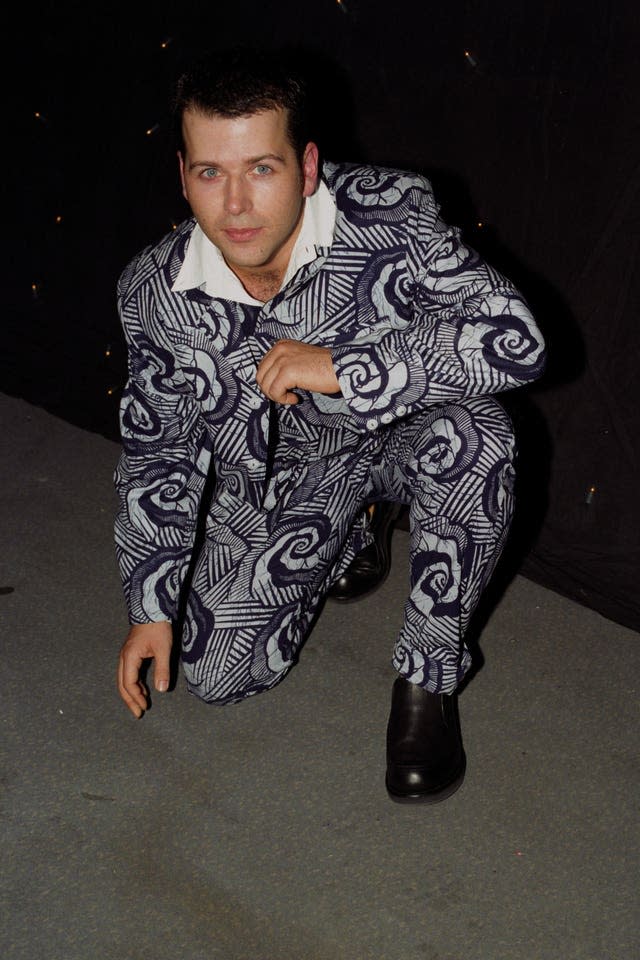
What are some of the most notable uses of music by politicians?
Former prime minister Theresa May surprised Tory activists, close aides and even her husband Philip when she shimmied on stage for her Conservative Party conference speech in 2018 to the tune of Abba’s Dancing Queen.
However, in 2022, M People founder Mike Pickering said his band were “livid” that their song, Moving On Up, was used by Liz Truss on stage at the Conservative party conference.
Boris Johnson was another former prime minister to come in for criticism for his Conservative party conference walk-on music, having used Friendly Fires’ track Blue Cassette in 2021.
The indie band later hit out at the then-prime minister, saying their “permission was not sought” to use the song and they had asked their management to ensure it was not to be used again by the party.
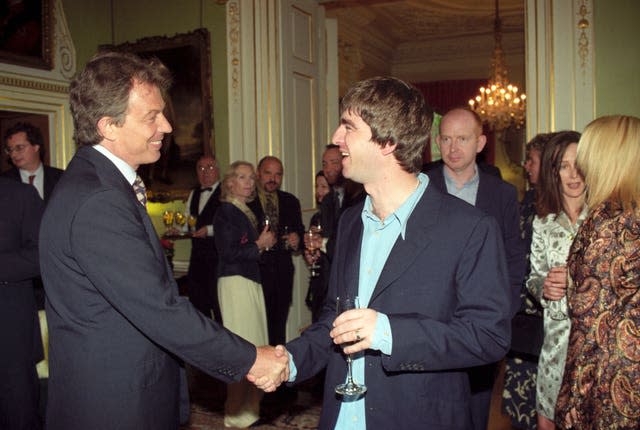
The Smiths guitarist Johnny Marr famously banned former prime minister Lord Cameron from even liking the indie rock band’s music.
He posted on social media in 2010: “David Cameron, stop saying that you like The Smiths, no you don’t. I forbid you to like it.”
In 2006, the Arctic Monkeys proved an embarrassment to both the Liberal Democrat and Labour conferences, with former Lib Dem leader Lord Menzies Campbell stating wrongly that they had sold more records than the Beatles.
Former prime minister Gordon Brown, after claiming to be a fan of the Sheffield band, was unable to name a single track from their debut album, merely saying: “They are very loud.”
And in the 1990s, Tony Blair famously attempted to co-opt the ‘Cool Britannia’ spirit of the time, being photographed in 10 Downing Street with Noel Gallagher from Oasis when the Mancunian band were at their Britpop peak.
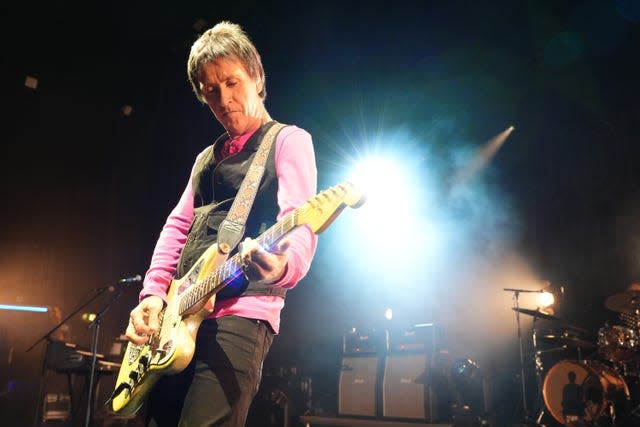
What about Donald Trump?
As well as his criticism of Lord Cameron, Johnny Marr has hit out at the use of songs by The Smiths at Donald Trump rallies.
The co-songwriter of This Charming Man said earlier this year that he “never in a million years” thought this would be an issue and hinted he would take legal action.
He was the latest in a string of musicians to blast the Republican presidential hopeful for using music without permission – there is even a Wikipedia page detailing all the artists opposed to Mr Trump using their work.
In 2018, Steven Tyler of Aerosmith sent a letter to the then-President ordering him to stop playing the band’s songs at political rallies, after the band’s 1993 hit Livin’ On The Edge was played at a rally in Charleston, West Virginia.
Other artists who have taken action after Mr Trump used their music include The Rolling Stones and Neil Young, while Linkin Park issued a cease and desist order after the band’s song, In The End, appeared in a video supporting the then-president.
One musician who has allowed Mr Trump to prominently use his songs, and even appeared on stage at a rally for the former president, is country music star Lee Greenwood.
“We love that voice, and we love that song,” Mr Trump said of Greenwood – who is known for his patriotic 1984 track, God Bless the USA, a staple of Republican Party political rallies.
Earlier this year, Greenwood was forced to defend selling “God Bless the USA” branded bibles in partnership with Mr Trump.
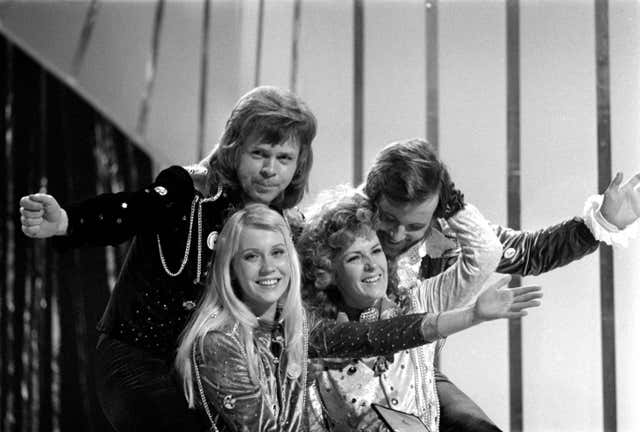
Who decides what gets played during campaigns and party conferences?
Political aides revealed that Mrs May had told no one she was planning to throw some shapes to Abba at the Conservative party conference in Birmingham.
One member of the former prime minister’s inner circle said it had been decided to play Dancing Queen as a reminder of her recent trip to Africa, but added: “None of us – including Philip – knew she was going to do that as she walked on stage.”
Ed Gillett argued in his book on the history of UK dance music, Party Lines, that something in Things Can Only Get Better’s message “clearly resonated with Labour apparatchiks, or tested well with the party’s army of focus groups” to be used as New Labour’s 1997 campaign song.
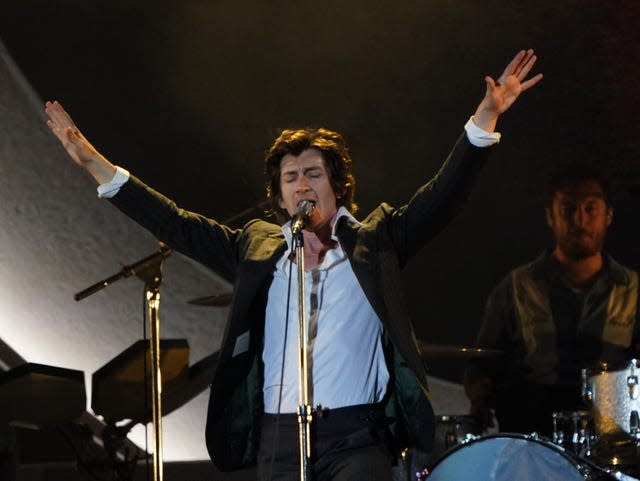
Do politicians need to get permission?
Under the Copyright, Designs and Patents Act 1988, permission is needed from the relevant copyright holders – the people who create music – in order to play or perform music in public.
PPL is the UK’s music licensing company for over 140,000 performers and recording rightsholders and has been licensing the use of recorded music in the country since 1934.
Its ‘TheMusicLicence’ provides permission on behalf of the rightsholders it represents, allowing the use of virtually all commercially released recordings in the UK.
However, under a clause prohibiting “derogatory use”, this licence excludes music “used as an introduction to, during or otherwise closely connected with the presentation of any political announcement, including keynote speeches during political party conferences and campaigns”.
For election campaigns, PPL offers a tariff “for the public use of sound recordings solely as background music during an election campaign by a single candidate”.
In its tariff running from May 1 2023 to April 30 2024, PPL charged £83.24 per candidate for each election campaign.
It added that applicants must provide written permission from the record companies involved before PPL will issue a public performance licence.


